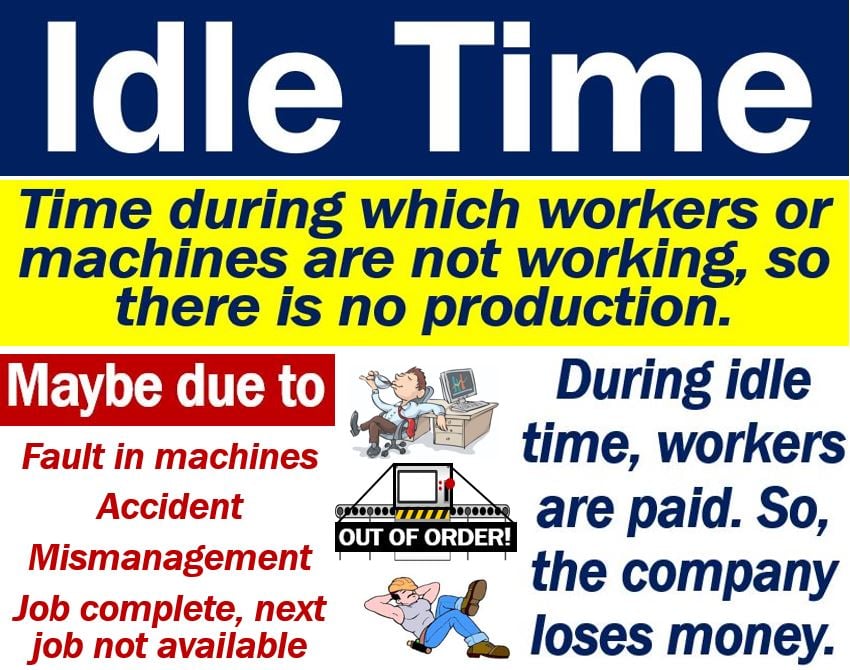Idle time refers to time when an employee or a production machine is not producing anything, i.e., not working. Idle time may be due to any type of work stoppage. We also call it downtime, allowed time, or waiting time. Sometimes management causes the downtime, but not always. The waiting time might be due to factors beyond management’s control.
We associate idle time with waiting, i.e., when we are not using a piece of machinery, but could be using it.
We also use the term for computers. Specifically, when a computer is not in use even though it is available.
During a computer’s idle time, i.e., when nobody’s using it, we should set it to ‘standby‘ or ‘hibernate.’ We should set it to either of those two modes to save energy.
During downtimes, employers are still paying their workers even though they are not doing any work. In other words, it is the unproductive time of employees, for which they are still receiving money.

Idle time – a loss for companies
During idle time, workers and machines do not produce anything, but workers still get their wages. For companies, this means they are losing money. If you still have costs but are getting nothing in return, you are incurring a loss.
Downtime may be the result of:
- Mismanagement: managers did not organize the production system efficiently.
- Accidents: if there is an accident and inspectors need to come in, they will ask that nobody enters the accident scene until they arrive. During that time, and also while they are inspecting the scene, there is no production.
- Faulty equipment: if there is something wrong with a machine, it will either not work properly or at all. If a technician has to come in to fix it, they will turn off the machine. During that time, there is no production.
- Job completed: sometimes, after workers have completed a job, there is nothing to do until the next job comes.
Too much idle time can seriously undermine productivity. Productivity refers to production per worker per day, week, month, etc.
Productivity may also focus on machines rather than people. Alternatively, productivity may refer to the whole company, i.e., both humans and machines.
